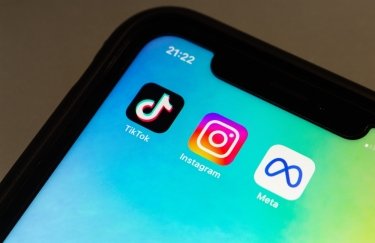
This story is part of a group of stories called

Uncovering and explaining how our digital world is changing — and changing us.
For weeks now, the federal government has issued warnings to the American public about deceptive or just plain crooked companies selling at-home coronavirus test kits that weren’t authorized by the Food and Drug Administration (FDA) — despite some of them claiming that they were. That’s now changed.
If you want to get tested for Covid-19 without leaving your home, you now have two FDA-authorized options to choose from. On May 7, the FDA granted an emergency use authorization for at-home saliva collection for Covid-19 tests developed by a lab at Rutgers University. The lab, RUCDR Infinite Biologics, joins LabCorp’s Pixel at-home nasal swab test, which was authorized by the FDA on April 21. (You can find a current list of FDA-authorized tests here.)
This should mean, depending on availability, you can now spit in a tube from the comfort of your living room to find out if you have Covid-19. For many, that’s a more attractive prospect than shoving a swab up your nose. The Pixel test lets you get tested for the coronavirus from home, but unlike some of the “getting stabbed in the brain” diagnostic tests we’ve seen, it does not require the swab to be inserted too far. Still, the saliva-based test seems like the less painful option.
Of course, the test is not as simple as just spitting in your house. With a doctor’s order, you have to buy a kit and follow the directions, which include spitting under the supervision of a health care professional via telehealth. Then you must properly package and ship the test back to the lab. The Rutgers lab is currently the only one authorized to process the tests, which are sold by at least two kit distributors: 1Health.io and Vault Health, which lists the price of a test at $150.
“With at-home testing, individuals now have access to testing without the fear of exposure to the virus or wasting scarce PPE used in nasal swab test environments,” Vault Health CEO Jason Feldman told Recode.
Due in part to the FDA wanting to get as many tests as possible out there, Covid-19 tests have operated in a bit of a regulatory gray area. This has some drawbacks. While the at-home collection spit test is newly authorized, distributors like 1Health.io and Vault Health have been allowed to market their at-home saliva tests for weeks now, due to the FDA’s policy of allowing diagnostic tests to be sold as long as they submitted for an Emergency Use Authorization (EUA) and passed their own validation tests. Until today, 1Health.io only sold its tests to health care providers to distribute to their patients until it received the authorization, but it’s now selling directly to consumers, too.
If it seems like the nature of FDA authorization is confusing, that’s because it is. No coronavirus tests are approved by the FDA yet — only FDA authorized, via the EUA. Both 1Health.io and Vault Health previously claimed to have FDA authorization, to have FDA approval, or to be “FDA EUA-approved” in marketing materials and press releases for their at-home saliva tests. In fact, only the Rutgers test itself was authorized in mid-April, but the at-home saliva collection element of the process didn’t yet have the FDA’s authorization. Now it does.
Other at-home diagnostic test distributors have been even more cavalier about marketing their tests. In late March, the FDA even issued a stern warning for American consumers to be on the lookout for unauthorized or fraudulent test kits. One company, MicroGen DX, later told STAT that it didn’t need FDA authorization for its at-home collection test at all. The FDA has also cracked down on shipments of unauthorized tests from other countries.
The evolving realm of serologic or antibody tests is dealing with even fewer restrictions. This has allowed some companies — Reuters calls them “dubious vendors” — to flood the market with more than 150 tests that haven’t been reviewed or authorized by the FDA. Some Chinese serologic tests didn’t even have the approval of China’s equivalent of the FDA but were being used by public health departments in Denver and Los Angeles. The FDA recently changed its policy on antibody tests to be more in line with that for diagnostic tests: Commercial serologic test manufacturers must now either have or be in the process of getting an EUA. The tests also must have minimum sensitivity and specificity rates of 90 percent and 95 percent, respectively. There are currently no FDA-authorized at-home collection antibody tests.
As for tests that can be completely done at home — that is, you don’t need to send anything to a lab — there are none that are FDA authorized. It also looks as though we’ll be waiting a while for them. Experts have told CNBC that rapid at-home coronavirus tests are possible but probably months away from becoming a reality. You can buy at-home rapid antibody tests in other countries, some of which have been approved by those countries’ respective FDA equivalents, but the reliability of these tests is very much in question.
Oh, and there’s one last hurdle to clear if you want to get an at-home collection test: availability. Pixel’s kit is so popular it’s only available to health care workers and first responders. Vault tells Recode it can deliver 10,000 tests per day, and Rutgers can process 20,000 tests per day, though it’s likely that capacity will increase as more distributors sell more kits and more labs are authorized to process the test. Meanwhile, some at-home collection tests may be subject to state restrictions. Pixel is not available in New York, New Jersey, Maryland, or Rhode Island, for instance. Vault says it’s available in every state except Alaska, and 1Health says it’s available in all 50 states.
All that said, at-home collection is still seen as less accurate due to an increased risk of human error. If you don’t trust yourself to properly collect a sample and ship it to the lab, consider going to an old-fashioned testing location instead.
Support Vox’s explanatory journalism
Every day at Vox, we aim to answer your most important questions and provide you, and our audience around the world, with information that has the power to save lives. Our mission has never been more vital than it is in this moment: to empower you through understanding. Vox’s work is reaching more people than ever, but our distinctive brand of explanatory journalism takes resources — particularly during a pandemic and an economic downturn. Your financial contribution will not constitute a donation, but it will enable our staff to continue to offer free articles, videos, and podcasts at the quality and volume that this moment requires. Please consider making a contribution to Vox today.
Sourse: vox.com






